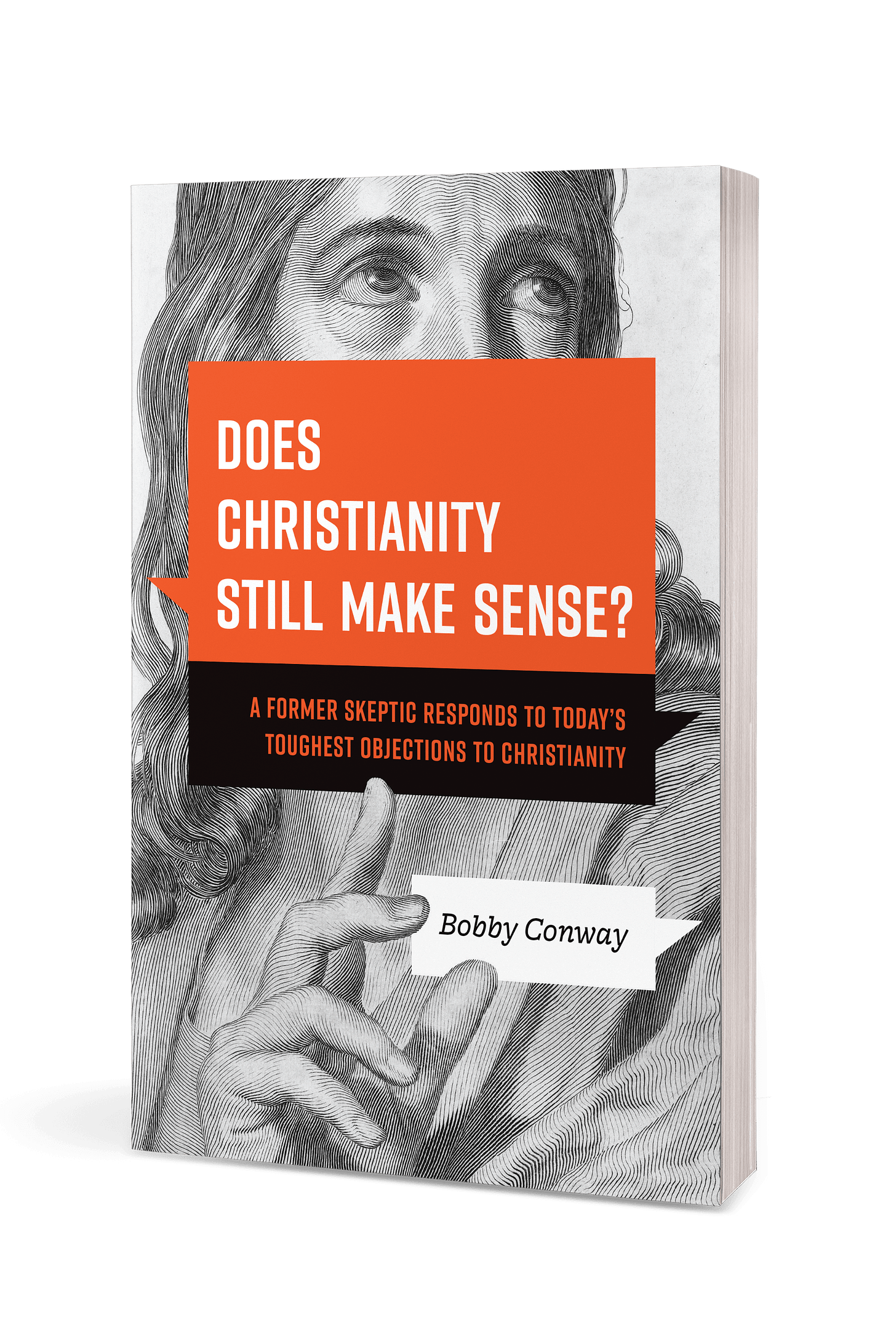By Bobby Conway

Unfortunately, there are overly zealous people out there who oppress others in the name of Christianity—though thankfully it’s not the norm. Sadly, people like that often leave a bad taste in the mouths of nonbelievers, giving them one more reason to criticize Christianity. However, people who spew hatred and judgment in the name of Christianity should never be held up as the measure for authentic Christian faith; rather, they are the antithesis of it.
Critics of Christianity often point out the ways in which Christians have oppressed others through the ages: the Crusades; the Spanish Inquisition; the Salem witch trials; the slave trade; or, in our own day, the denigration of women, African Americans, or the LGBTQ community. Though no Christian with the slightest awareness of church history could deny that the church has seen its share of oppressors throughout the ages, neither can we fail to acknowledge the abundance of good done in the name of Jesus.
Consider the following brief examples: The first orphanages were run by churches. Various churches and individual Christians founded many of the great American universities, such as Harvard, Princeton, and Yale, to ensure that people would be given a proper education. The church was pivotal in leading society to abolish slavery, with leaders such as the British parliamentarian William Wilberforce. George Williams founded the YMCA to protect youth from the hazardous conditions on the streets. Likewise, William Booth founded the Salvation Army to care for the poor and disadvantaged. In our day, Millard and Linda Fuller started Habitat for Humanity to provide housing for the poor on an international level.
Today, churches everywhere strive to help the homeless, offer protection and alternatives to women considering abortion, work to eradicate the sex trade preying on young women and girls, and feed the hungry … and that’s just scratching the surface of the good done in the name of Jesus. Far from oppressing the world, many contemporary Christians seek to free the world from oppression in various ways.
So, why has the modern church been so regularly accused of oppression? Here’s why. Our culture has become so fragile and intolerant of opposing viewpoints that many people feel oppressed if we simply disagree with their moral decisions. Never mind that differing viewpoints are part and parcel of a free society. Today we are reaping the bitter fruit of thinkers such Friedrich Nietzsche, Sigmund Freud, and Karl Marx, all of whom believed that religious morality was an oppressive delusion.
Nietzsche famously pronounced that “God is dead.” His allegation wasn’t so much that God had died, but rather that he had become irrelevant, and that we “no longer need Christianity as a guarantee of morality.” What is needed, according to this philosophy, is a master morality of the strong-willed who can break free from the religious shackles of the past. The herd morality of the masses limits human flourishing and is meant to be resisted in order to discover one’s own way.
Freud viewed religion as a psychological crutch, the outgrowth of a desire rooted in “wish fulfilment” that ultimately suffocates its victims with oppressive guilt. For Marx, “Religion is the sigh of the oppressed creature. … It is the opium of the people.”
These thinkers believed that the moral framework imposed on humanity by the religious class needed to be set aside for human fulfillment to come to fruition. And we see evidence of such thinking in our culture today. Nietzsche, Freud, Marx, and others heavily influenced the postmodern mindset; their ideas have been coupled with various schools of critical theory that view everything through the lens of an oppressed/oppressor framework. Individual expression, elimination of sexual oppression, being authentic and true to oneself, casting off all forms of hierarchy—these are the emerging values of our culture. But this new morality fails to recognize its ethical weaknesses.
Here’s what I think is oppressive: being forced to agree with people who are offended by beliefs that don’t square with their own. With many people unwilling or unable to stomach competing opinions, America has become a cancel culture. Instead of allowing alternative opinions a seat at the table of ideas, some people would rather force others into submission by means of public ridicule or condemnation. We’ve all witnessed this sort of oppression—from demands that all white people “repent” of their racism, to people who go ballistic if anyone uses the “wrong” pronoun, to LGBTQ activists deriding anyone who doesn’t celebrate gay pride.
It has been said many times that “ideas have consequences,” and some greater than others. The ideas of such thinkers as Nietzsche, Freud, and Marx—and we could certainly add others, including Darwin, Foucault, and Derrida—have heavily influenced our contemporary culture. Sadly, many people who are driven by these ideas don’t seem to realize it. They are fueled by a passion often bereft of knowledge about the philosophical engine that keeps their movements moving.
Bottom line: I don’t buy the proposition that Christianity, at its heart, is oppressive. Christianity promotes a morality that some find constraining, but it doesn’t write people off and demonize those who don’t ascribe to faith in Jesus. Rather, it could well be argued that the oppressors are those who want to force Christians and other religious believers into moral straitjackets.
. . . Ours is no longer a nation where we can agree to disagree about our beliefs and opinions and yet still unite, sharing nonpartisan or bipartisan agreement on policies. No, a new crowd has emerged that is more than ready to punish, ridicule, cancel, and run off anyone who doesn’t fall in line with the program—whatever that program might be. Again, that’s oppressive.
— Bobby Conway serves as lead pastor of Image Church in Charlotte, North Carolina, and is well known for his YouTube ministry, Christianity Still Makes Sense (formerly One Minute Apologist). He also serves as the cohost of Pastors' Perspective, a nationally syndicated radio show on KWVE in Southern California. Bobby is the author of several books including The Fifth Gospel and Doubting Toward Faith. He holds a PhD in philosophy of religion from the University of Birmingham in England and resides in Charlotte with his wife, Heather. They have two adult children, Haley and Dawson.
Image by Jan Marczuk from Pixabay
---
Excerpted from Does Christianity Still Make Sense?: A Former Skeptic Responds to Today’s Toughest Objections to Christianity by Bobby Conway (Tyndale Elevate, 2024)

“Bobby Conway is one of the most honest truth seekers I know. He shares the personal doubts and questions he has wrestled with in his life, but also the compelling reasons he remains a Christian. This book has depth, but it’s also accessible, interesting, and honest.”
— SEAN MCDOWELL, associate professor of apologetics at Biola University and coauthor of Evidence for Jesus
“Not only does Christianity still make sense, so does Pastor Bobby Conway! I doubt you’re going to find more succinct and practical answers to the modern objections to Christianity than you’ll find in this book. Highly recommended for everyone, but especially for young people who are being bombarded by deceitful messages and harmful ideologies.”
— FRANK TUREK, president of CrossExamined.org and coauthor of I Don’t Have Enough Faith to Be an Atheist
“Bobby Conway writes from such a genuine, humble place of wanting to help others work through the same challenges he’s faced—and that shines through on every page. His transparency is truly refreshing. This book will be a great help to anyone looking for succinct, easy-to-understand, and biblically-sound answers to some of culture’s most pressing questions.”
—NATASHA CRAIN, speaker, podcaster, and author of four books, including Faithfully Different
Find Does Christianity Still Make Sense? at Amazon, Barnes & Noble, Christianbook.com, Tyndale, and other major booksellers.
*sponsored








